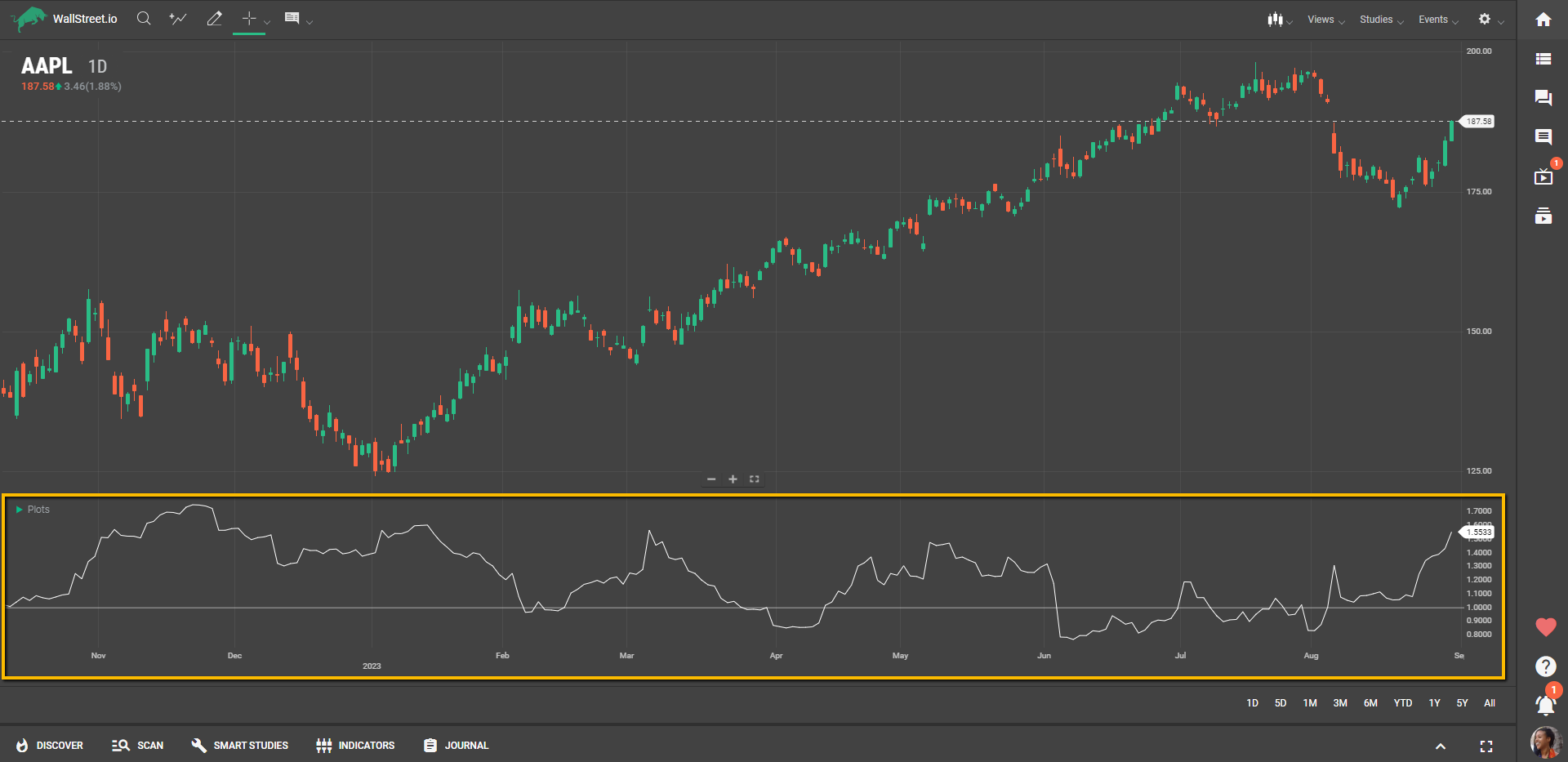
Beta
Definition
The Beta indicator quantifies the volatility of a particular security in relation to a benchmark, commonly a market index like the S&P 500. It serves as a risk measure to help you understand how much a security's returns fluctuate compared to the market as a whole. A Beta value greater than 1.0 indicates that the security is more volatile than the market, while a Beta less than 1.0 suggests it's less volatile.

Suggested Trading Use
Beta is particularly useful for traders looking to diversify their portfolios or understand the risk associated with a particular security. If you're a risk-averse trader, you might prefer securities with a Beta less than 1.0, as they tend to be less volatile and offer more stable returns. On the other hand, if you're seeking higher returns and are comfortable with more risk, a security with a Beta greater than 1.0 might be more suitable.
Traders can also use Beta to evaluate the potential impact of market movements on their holdings. For example, if the market goes up by 1%, a stock with a Beta of 1.2 is likely to increase by 1.2%, while a stock with a Beta of 0.8 might go up by only 0.8%.
Understanding a security's Beta can provide invaluable insight into how it may behave in different market conditions and assist you in making informed trading decisions. It's a must-have tool for those interested in balancing their portfolio or gauging the relative risk of individual securities.

 Discover Tab Reference Guide
Discover Tab Reference Guide Discover Tab How-To Guide
Discover Tab How-To Guide Smart Studies How-To Guide
Smart Studies How-To Guide Smart Studies Reference Guide
Smart Studies Reference Guide Scan Tab Reference Guide
Scan Tab Reference Guide Scan Tab How-To Guide
Scan Tab How-To Guide Watchlists How-To guide
Watchlists How-To guide Watchlists Reference Guide
Watchlists Reference Guide Chatrooms Reference Guide
Chatrooms Reference Guide Community Wall How-To Guide
Community Wall How-To Guide Community Wall Reference Guide
Community Wall Reference Guide Streams Reference Guide
Streams Reference Guide Streams How-To Guide
Streams How-To Guide